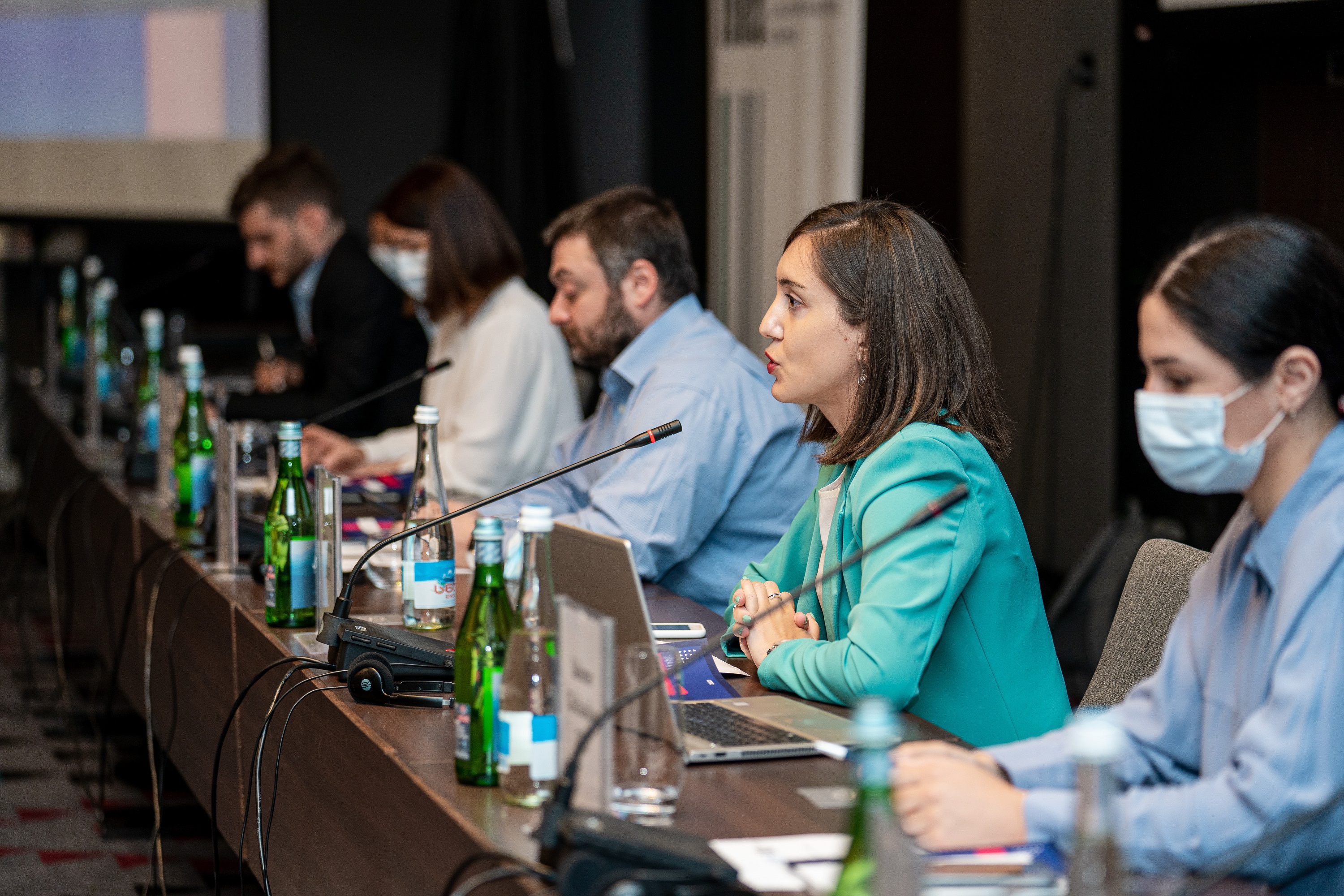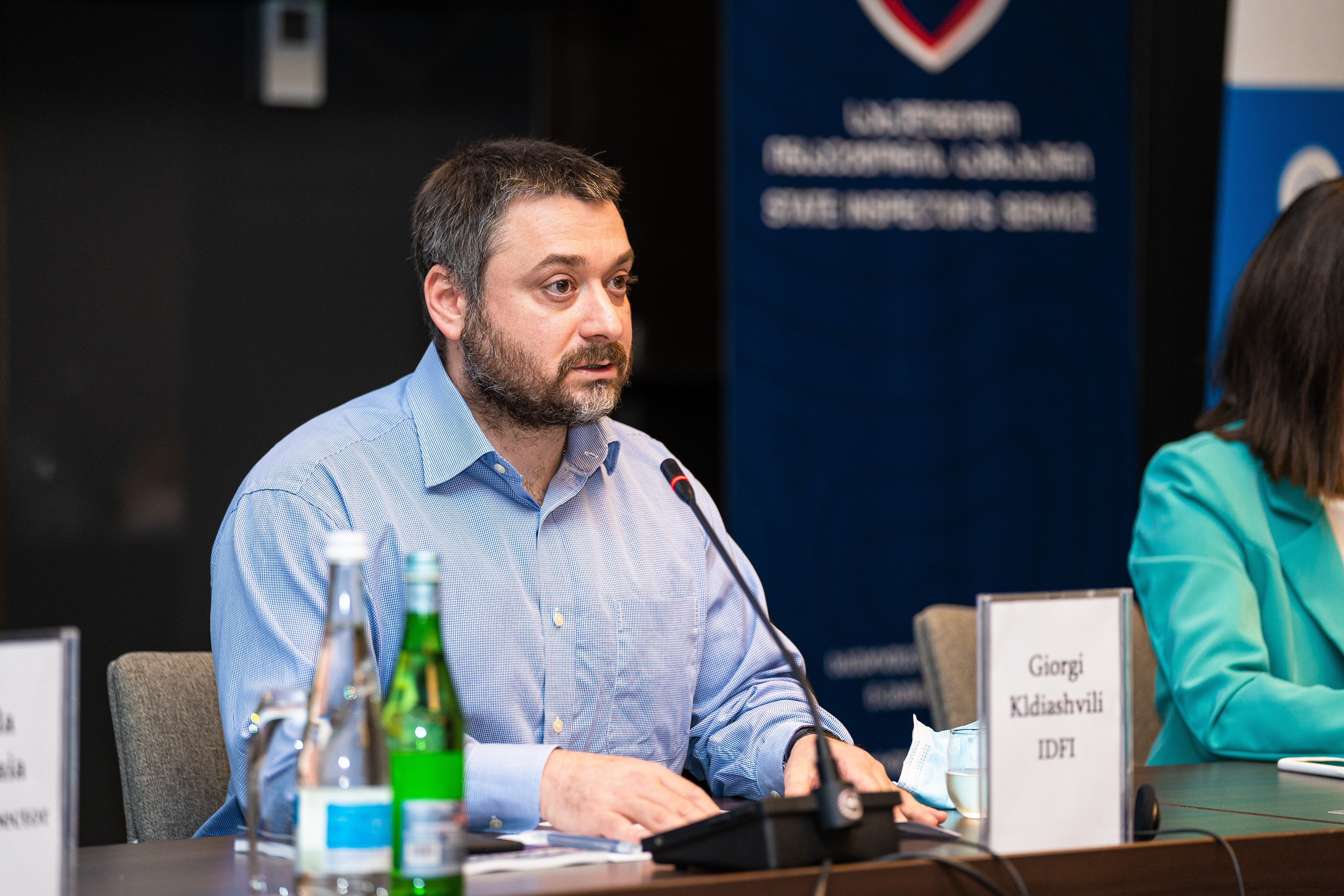


 On 12 July 2021, the Institute for Development of Freedom of Information (IDFI) and the Social Justice Center presented the study “Independent Investigative Mechanism in Georgia - Achievements and Existing Challenges”.
On 12 July 2021, the Institute for Development of Freedom of Information (IDFI) and the Social Justice Center presented the study “Independent Investigative Mechanism in Georgia - Achievements and Existing Challenges”.
The event took place in cooperation with the State Inspector’s Service and with the support of the Open Society Georgia Foundation (OSGF).
Executive Director of the Institute for Development of Freedom of Information - Giorgi Kldiashvili, Director of Democracy and Justice Programme of Social Justice Center – Guram Imnadze, and the State Inspector - Londa Toloraia, addressed the participants with welcoming speeches.
“Establishing an independent investigative mechanism to ensure an impartial and efficient investigation of crimes committed by law enforcement officials was an important step forward. The joint study of IDFI and the Social Justice Center is the first document that comprehensively assesses the existing independent investigative mechanism in Georgia and analyses existing challenges. We hope that the specific recommendations we offer will help improve the capacity of the State Inspector's Service." - said Giorgi Kldiashvili.
“Abuse of power by law enforcement agents and the lack of investigations into these cases was one of the most serious human rights challenges for years. Establishing the State Inspector's Service was an important step in addressing this issue. However, forming an institution alone will not solve the problem if it does not have all the necessary legal and institutional mechanisms to perform its assigned functions. The present study provides an in-depth analysis of the challenges in the legislation and practice, the solution of which will contribute to the efficiency of the Service and, consequently, to a higher level of protection of citizens' rights” – noted Guram Imnadze.
In the presentation of the study, the study authors introduced key findings and recommendations.
Key findings:
- The investigative mandate of the State Inspector's Service is restricted by pre-determined subjects and it does not extend to the alleged crimes committed by the Minister of Internal Affairs, Head of the State Security Services, and the General Prosecutor
- The mandate of the Investigative Division does not extend to non-violent crimes committed by law-enforcement representatives, thus leaving the criminal cases of high public interest outside the scope of an independent investigative mechanism
- Regardless of the institutional independence of the State Inspector's Service, the entity is not equipped with sufficient mechanisms for conducting independent investigations. Investigators are limited to conduct independent investigations on criminal cases and take decisions on important investigative measures
- The Investigative Division is not entitled to access information kept in computer systems (video recordings) without the approval from the Prosecutor’s Office even when there is the threat of destroying evidence, which could serve as the main basis for investigating alleged crimes committed by law-enforcement representatives.
- The efficient operation of the State Inspector's Service is hindered by the lack of human, financial, and infrastructure resources.
The study highlighted that the selection of employees is based on a complex competition procedure at the State Inspector's Service. At the same time, the study positively assessed the fact that higher education in law is a necessary qualification requirement for Service's investigators, which directly affects the quality of their professional activities. The study also positively assessed the transparency of the State Inspector's Office and the published reports, the separation of investigative and operational activities, and the involvement of a collegial body in the process of resolving disciplinary issues.
Read the study here.

